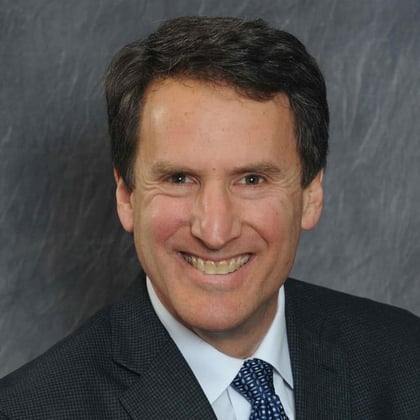What You Need to Know
- Advisors who discuss charitable planning often develop deeper relationships with their clients and their clients’ spouses and heirs.
- Even advisors who are not experts in charitable planning themselves can help their clients in a number of ways.
- Advisors should be comfortable in determining which method of giving would be most appropriate for different clients.
Recently, I was a panelist on ThinkAdvisor’s webcast “Future of Donating: Strategies for Philanthropic Clients.” We discussed ways advisors can work with charitably minded clients, and a number of the audience’s questions pertained to getting started. While there is no one correct answer for all advisors, there are some steps that can be helpful to many.
The charitable conversation between advisors and clients has been taking place more frequently in recent years for many reasons. Advisors understand that many clients, especially in the past few years during various crises, have wanted to give back since there is so much need. At the same time, these clients have felt fortunate to be in a financial position to be able to support various causes and charities both here and abroad.
Advisors have also seen how this discussion has enabled them to develop deeper relationships with their clients and their clients’ spouses and heirs, and has allowed them to bring in and retain clients and subsequently manage more assets. It has also been a differentiator when meeting prospects who are engaged in philanthropy. One advisor in Florida told me that “if I don’t talk about it, some other advisor will.”
But for those who have not yet begun to engage their clients, or for those who have started but would like to become more active, these five steps can help.
1. Understand how the conversation benefits clients.
Some advisors are reluctant to initiate the discussion, but clients welcome it since they understand that their advisors need to know what they want to do with their money now and later. Some of the ways in which advisors can help their charitably minded clients include helping them understand how to:
- Donate more tax-efficient assets (i.e., appreciated stock instead of cash), so they can give more to charity, pay less in taxes and have a greater impact.
- Streamline giving, decrease frustration and paperwork, and increase satisfaction.
- Plan charitable giving now instead of much later in life.
- Include family members in decisions and help to pass down charitable values,
- Determine whether the client should establish a donor-advised fund (DAF), private foundation, or just give directly.
2. Determine with which clients to have the conversation.
Fewer Americans than in the past may be contributing to charities, but various studies have shown that roughly 90% of high-net-worth and ultra-high-net-worth clients still give annually. Some give a lot, and some not much, but various events in one’s personal life or in society can suddenly cause one to become more philanthropic than in the past. Some get involved once they retire or sell their business, while others plan earlier and establish and contribute to a DAF when they are working so they can be generous afterward.
It is wise to discuss this every year so advisors can provide the best advice. Regardless of the amount that clients donate every year, they all may experience a similar level of satisfaction and pride from their giving, and the amount that they give may change and grow.
3. Learn how to have the charitable conversation.
It is always easiest if advisors can demonstrate that they are a board member, volunteer or donor, but for those advisors who are new to this space, expressing a desire to get involved can suffice. It is also helpful if the advisor’s firm can show its commitment to the community. Knowing some introductory questions can help when starting the conversation, and then the conversation will flow naturally. Some initial questions may include:
- Are you involved with any nonprofit organizations? In what capacity? As a donor, volunteer, board member?
- Do you typically support the same organizations every year, or have you made any changes in the past few years in response to various crises?
- How do you decide which charities to support?
- When do you typically make donations each year?
- Which assets do you typically contribute? Checks, credit card, stock, other?
- Do you have a donor-advised fund, private foundation, or other charitable vehicle?
- How do you decide how much to contribute?
- Do you involve your family or others in any giving decisions?
- Do you prefer to give anonymously or publicly?
- Do you envision any changes in your giving or involvement in the future?
4. Educate your clients.
Advisors can help their clients in a number of ways, even if they are not experts themselves. If a substantial number of clients are interested, advisors may wish to host events and invite experts or representatives from local charities to speak. Some may wish to partner with other trusted advisors to discuss the best ways of giving.








 September 06, 2022 at 09:00 AM
September 06, 2022 at 09:00 AM












 Copyright © 2024 ALM Global, LLC. All Rights Reserved.
Copyright © 2024 ALM Global, LLC. All Rights Reserved.